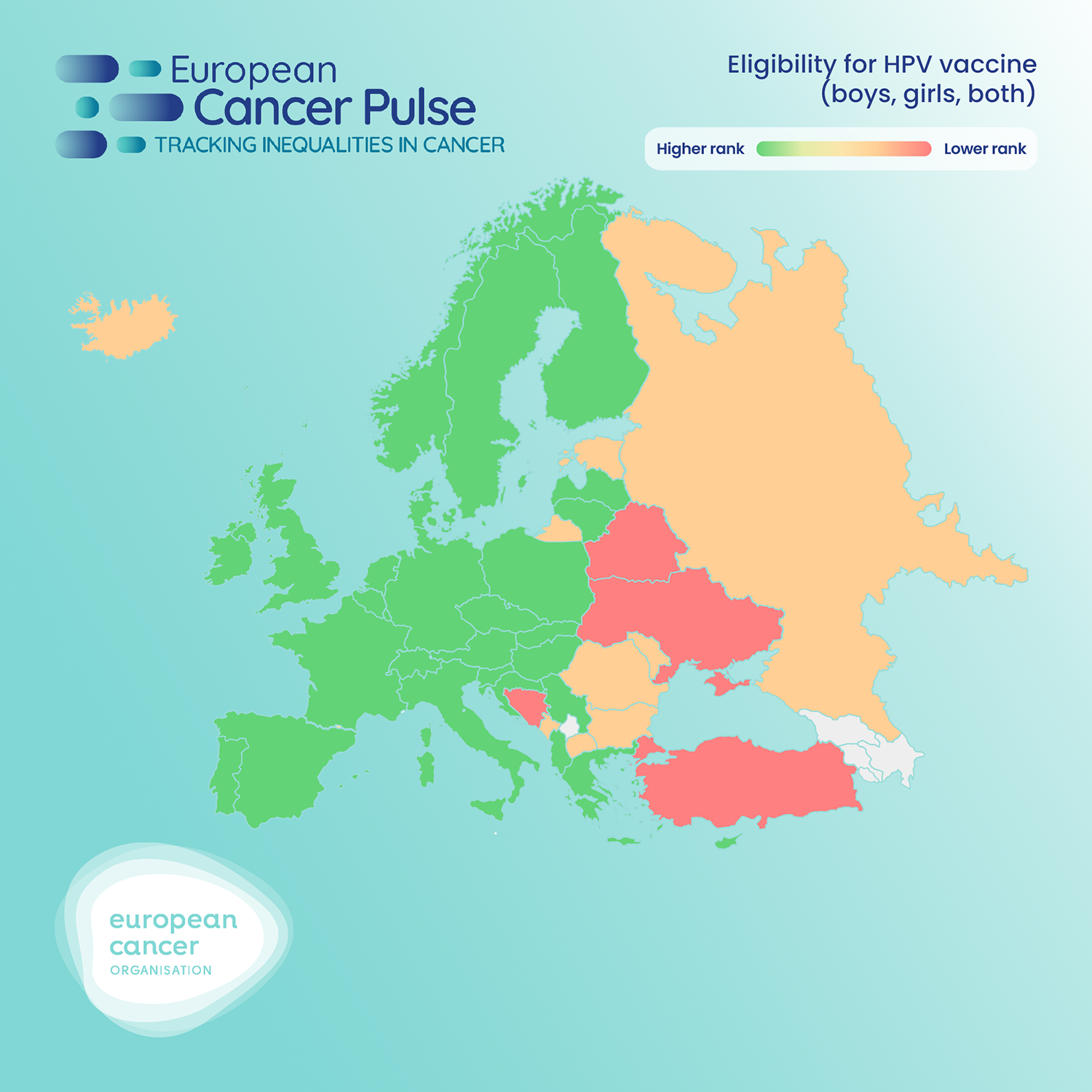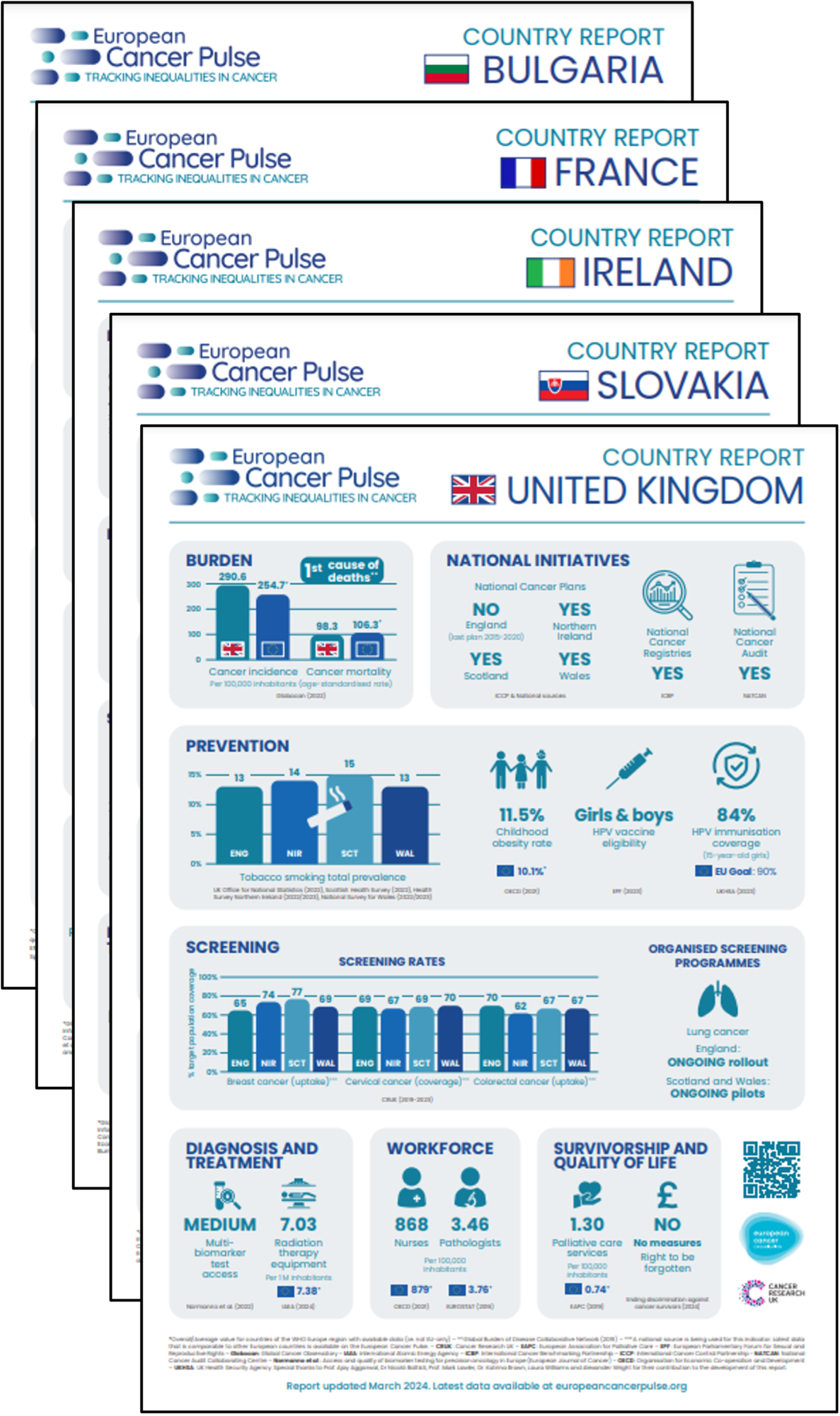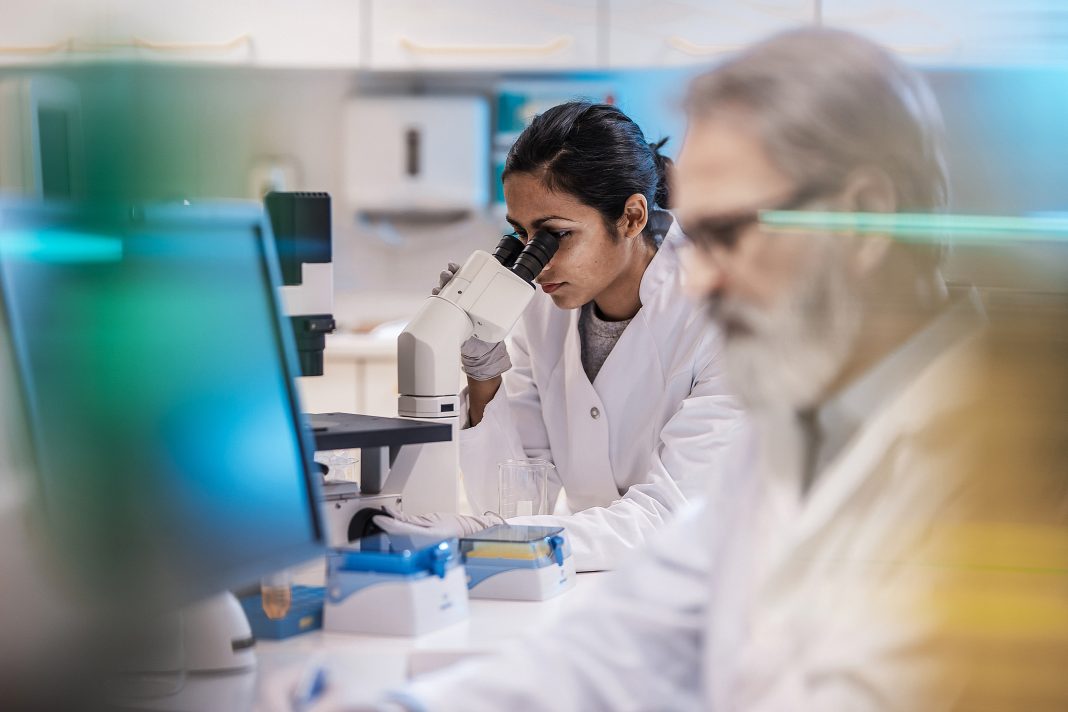Norbert Couespel 1 and Mark Lawler 1, 2 highlight the European Cancer Pulse, a critical tool in tracking cancer inequalities and influencing cancer policy in Europe
2024 marks the 10th anniversary of the European Cancer Patient’s Bill of Rights (1) launch in the European Parliament on World Cancer Day. The Bill of Rights was underpinned by what, at the time, was the most extensive study of cancer inequalities in Europe (2). Despite the impact of the Bill of Rights (3), cancer inequalities continue to be a challenging issue in Europe; eliminating these inequalities has been a significant aim of Europe’s Beating Cancer Plan. (4)
A critical component in successfully addressing cancer inequalities is cataloguing their existence and their nature – robust intelligence is required to categorise the many inequalities that may be experienced by cancer patients in Europe and their potential impact. (5) Regrettably, this task has proved challenging, with extreme fragmentation of the information available; additionally, much of the data may not be robust, hampering its provision in a timely fashion to influence action.
The European Cancer Pulse
Recognising this, the European Cancer Organisation (ECO) launched the European Cancer Pulse (6), a data intelligence resource that tracks European cancer inequalities. The Pulse complements but enhances the existing European Cancer Inequalities Registry (7) (launched by the European Commission with an initial focus on cancer prevention and screening data, and covering European Union (EU) Member States as well as Norway and Iceland), by capturing many more inequality indicators across the entire European region.
The European Cancer Pulse functions as a data visualisation tool (Figure 1), capturing and displaying cancer inequalities in all EU and non-EU countries within the World Health Organization European Region (WHO-Europe), in all areas of the cancer pathway, in all cancer policies, in all areas of social inequalities across marginalised communities, for all types of available data.
Timely data are crucial to informing optimal decision-making on cancer policies and interventions. However, data intelligence from various stakeholders and well-intentioned initiatives may not be routinely available to, or directly accessible to, policymakers to catalyse evidence- informed decisions. Gaps in evidence can then perpetuate gaps in implementing optimal cancer policies. The Pulse aims to address this deficiency.
In summary, the European Pulse:
- Complements and inspires the EU Cancer Inequalities Registry to track all inequalities in cancer care across Europe and their determinants and resolution.
- Provides easy and public access to wide-ranging, currently fragmented data intelligence on cancer inequalities.
- Amplifies data and initiatives from across the cancer community on quantifying and tackling cancer inequalities.
- Identifies and plugs gaps in data intelligence on cancer inequalities.
- Raises awareness of the full extent of cancer inequalities in the broader stakeholder community.
- Focuses political attention on all cancer inequalities and their mitigation.
How the Pulse gathers and captures its data
The Pulse gathers its data through recurring analysis of the literature (grey and peer review), the capture of data from official European sources, and through interaction with leading stakeholder organisations/initiatives across the European cancer community, in particular with many of the professional and patient organisations which constitute ECO. All data undergo quality checks through the scientific oversight of the project. (8)
Currently, the Pulse captures data from 49 European countries on 280+ indicators in 24 inequalities categories, with over 13,000 data points. It includes data from international studies and pre-existing datasets that benchmark different countries’ progress in cancer policy. It captures data from professional and patient organisations within the ECO “family,” representing specific disciplines and types of cancer. It includes two modes on “Country Overview”, facilitating users to examine all data for a particular country, and “Country Comparison”, where users can deploy four visualisation options to benchmark different countries’ performance.

European Cancer Pulse Country Reports
The Country Overview capability has underpinned the development of European Cancer Pulse Country Reports, providing specific intelligence that is of value to policymakers in individual countries. All reports are prepared in collaboration with local stakeholders. ECO launched nine country reports in 2024; each launch took place in the country of the report, highlighting evidence of cancer inequalities and, where relevant, their mitigation, as part of ECO’s Time to Accelerate initiative across Europe. (9)
Country Reports (Figure 2) typically include data on:
- Cancer burden (cancer incidence, mortality, survival).
- National cancer initiatives (cancer plan, cancer registry).
- Cancer prevention (tobacco, alcohol, obesity, HPV).
- Cancer screening (coverage rates, programme organisation).
- Cancer diagnosis and treatment (testing, equipment, access).
- Cancer workforce (staffing issues).
- Cancer survivorship / quality-of-life (palliative care, Right to be Forgotten).
- Social inequalities in cancer.

The influence of the Pulse and its development
The influence of the Pulse in its country of launch has been significant. In Greece, it prompted the Ministry of Health’s announcements on the preparation of a National Cancer Plan, the development of a National Cancer Registry and progress towards a ‘Right to be Forgotten’ (10) to avoid financial discrimination against cancer survivors; in Bulgaria, it informed the Ministry of Health’s announcement on the implementation of HPV vaccination for boys; in the UK, it drew attention to the cancer workforce crisis (see Panel 1 below); it highlighted social inequalities in cancer survival in Ireland and the need for the Right To Be Forgotten to be embedded into Irish law; in France, it drew attention to low breast cancer screening uptake.
We continue to develop new functionality for the Pulse, but more importantly, we continue to deploy it as a user-focussed enabling tool to deliver the evidence base needed to effect change. It is critical that we make decisions based on evidence, rather than hearsay or opinion. The European Cancer Pulse empowers us to do just that, emphasising that providing data intelligence in an easy-to-deploy format can be transformative in addressing cancer inequalities and ultimately saving lives.
Author details
- European Cancer Organisation, Brussels, Belgium;
- Patrick G Johnston Centre for Cancer Research, Queen’s University Belfast, Belfast, UK.
CLICK HERE for references
Panel 1: UK’s oncology workforce in crisis: ECO survey results
- 18% of cancer professionals are experiencing high levels of burnout
- 45% felt that their work exhausts them.
- 45% reported that the high levels of administration required made their job too difficult.
- 48% indicated that they felt that their supervisors did not care about their wellbeing
- 49% of those who participated say that their workload seemed endless.


